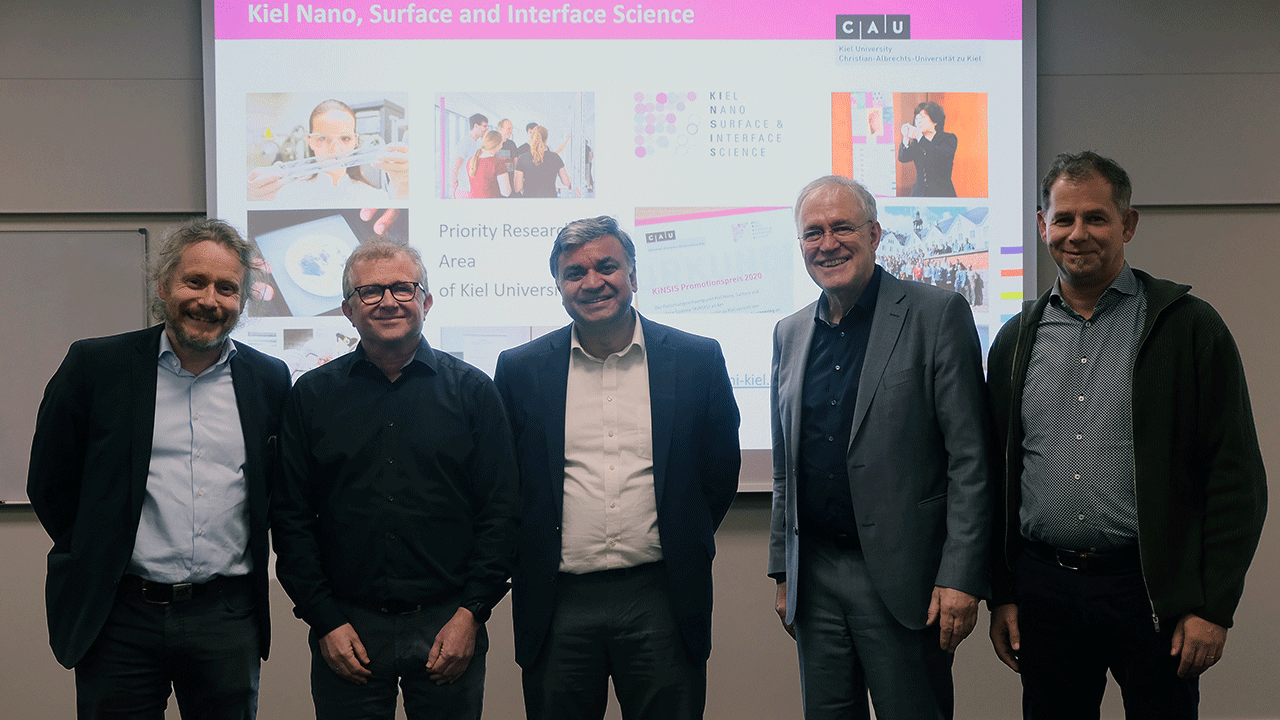
Prof. Dr. Rainer Adelung, Institute of Materials Science; Prof. Dr. Jeffrey McCord, Institute of Materials Science; Shashank Priya, UMN vice president for research and innovation; Prof. Dr.-Ing. Eckhard Quandt, Kiel vice president for research, scientific infrastructure and transfer; and Prof. Dr. Gerhard Schmidt, Department of Electrical and Information Engineering. Photo: (C) Julia Siekmann, Uni Kiel.
On January 25-26, VP for Research and Innovation Shashank Priya visited Kiel University in Northern Germany to discuss current research collaborations and potential future areas of cooperation.
UMN and Kiel have already inked an agreement on collaboration in the area of biosensors under the auspices of the new International Institute for Biosensing at the U. A hybrid online and in-person workshop is planned for September 2024 in Minneapolis with the goal of building faculty-to-faculty collaboration around sensors, imaging modalities, neuroelectronics, biomagnetic field sensing, and nanomaterials, among other topics. These joint research activities hold the potential for student training and workforce development opportunities that could engage Minnesota-based industries.
Priya said another promising area of cooperation is in marine science, with a collaboration between Kiel’s robust marine-related programs (the city of Kiel sits on the coast of the Baltic Sea) and a potential Marine Engineering Sciences degree program at the University of Minnesota Duluth.
According to Priya, other areas of potential partnership between UMN and Kiel are in life sciences–especially biotechnology and biomanufacturing, sustainable agriculture, archeology, and technology transfer, particularly around startup creation and venture capital investment.
Priya says that RIO’s international strategy for research is aimed at growing the UMN research enterprise and finding new opportunities for UMN faculty, postdocs, and students.
“Our philosophy is simple–there is a lot of great research occurring at other global institutions that aligns well with our Research 2030 directions and we want to leverage this expertise and progress,” said Priya. “Teaming up with experts accelerates our progress on specific topics of interest and at the same time opens opportunities for new collaborations to form as we get to learn about each other's institutional capacity.”